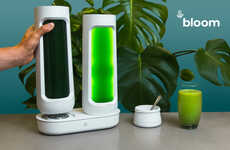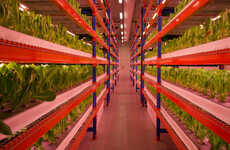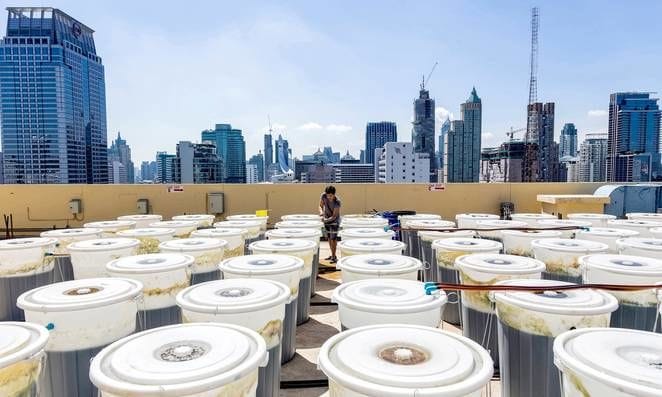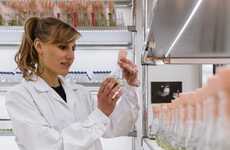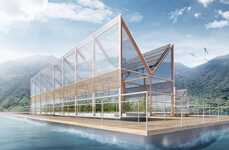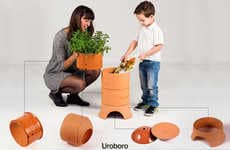
This Startup is Growing Edible Algae on Top of a Bangkok Hotel
Katherine Pendrill — April 12, 2016 — Eco
References: energaia & treehugger
'EnerGaia' is a Thai startup that is growing edible algae on the roof of the Hotel Novotel Bangkok. Urban farming is quickly becoming a popular way for consumers to grow their own produce and now the same techniques are being used to grow spirulina.
EnerGaia's facilities are located on the roof of the Hotel Novotel in downtown Bangkok. The rooftop is outfitted with rows of white barrels that use carbon dioxide as an inorganic carbon source to grow edible algae. After harvesting the spirulina, the algae is sent to a facility that dries and packs it for consumers. Over the course of a year, the rooftop farm can produce between 300-500kg of spirulina for stores and retailers all over Thailand.
With a system that uses minimal space and resources, the innovative urban farm demonstrates that spirulina can be grown virtually anywhere.
EnerGaia's facilities are located on the roof of the Hotel Novotel in downtown Bangkok. The rooftop is outfitted with rows of white barrels that use carbon dioxide as an inorganic carbon source to grow edible algae. After harvesting the spirulina, the algae is sent to a facility that dries and packs it for consumers. Over the course of a year, the rooftop farm can produce between 300-500kg of spirulina for stores and retailers all over Thailand.
With a system that uses minimal space and resources, the innovative urban farm demonstrates that spirulina can be grown virtually anywhere.
Trend Themes
1. Urban Farming - The rooftop spirulina farm showcases the potential for urban farming as a sustainable method of food production.
2. Edible Algae - The growing interest in edible algae presents innovative opportunities for companies to develop new food products and supplements.
3. Resource Efficiency - The use of minimal space and resources in the rooftop farm highlights the potential for resource-efficient farming practices, reducing environmental impact.
Industry Implications
1. Food and Beverage - The food and beverage industry can explore incorporating spirulina into various products, catering to the growing demand for healthy and sustainable options.
2. Agriculture - The agriculture industry can adopt urban farming techniques to maximize crop yield and reduce reliance on traditional agricultural practices.
3. Health and Wellness - The health and wellness industry can leverage the popularity of edible algae to develop innovative supplements and functional food products.
6.2
Score
Popularity
Activity
Freshness


